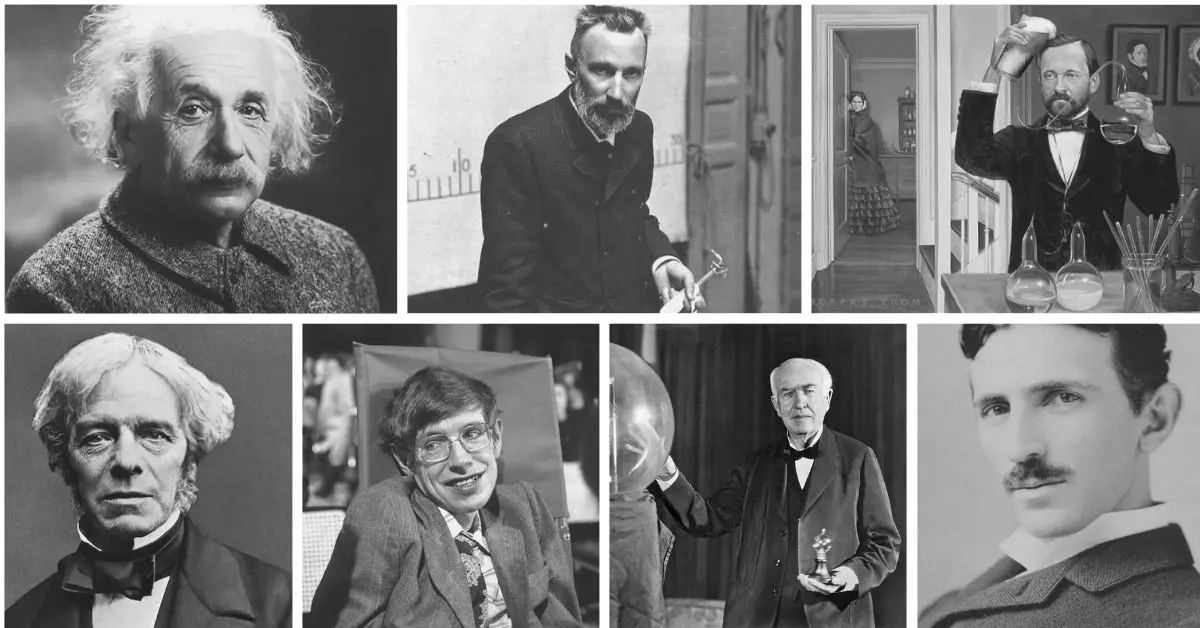To celebrate scientists and scientific advancements, we have collected a list of the most famous scientists with learning disabilities that will inspire us for the greater good.
We often think of scientists as those who are super smart and have sharp minds, but the truth is that not all of them are born geniuses. Even though most of us consider Einstein and Newton to be brilliant minds, it turns out that both of these famous scientists had dyslexia.
Many famous historical figures suffered from learning disabilities but still succeeded in science because they overcame obstacles.
To create a shortlist, we have taken the time to research our topic and provide you with the highest quality content. We have also included a list of references to help you further your research on this topic.
Let’s begin!
Table of Contents
Famous Scientists With Learning Disabilities
#16. Archer John Porter Martin (1910-2002): The Man Who Rose to Be An Important Figure in Chemistry
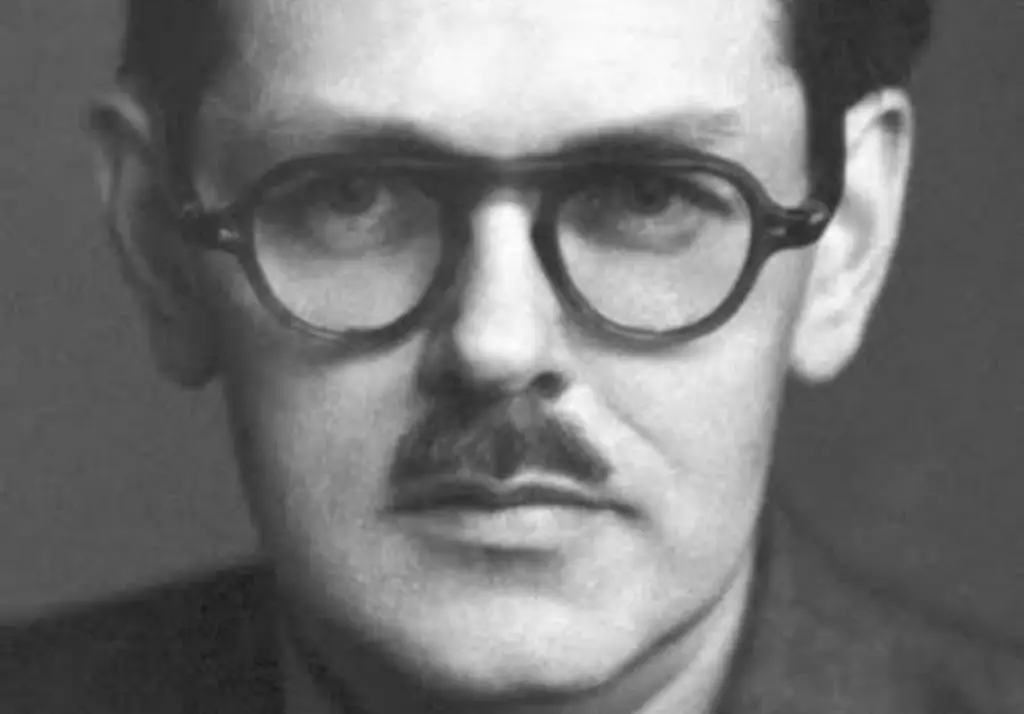
What makes Archer John Porter Martin famous?
Archer John Porter Martin was a Cambridge-educated chemist who, in 1952, earned himself a Nobel Prize in Chemistry with his colleague Richard Synge.
The pair invented partition chromatography, which is used to separate mixtures of amino acids.
They were the first people ever to win this Nobel Prize for work on partition chromatography—which is why Martin was known as “the father of partition chromatography.” But his contributions didn’t stop there.
He also invented gas-liquid chromatography, which allows scientists to study compounds even when they’re not dissolved in liquids. This invention has been credited with changing the face of biochemistry by making it possible to separate and identify organic molecules at low concentrations.
Despite these achievements, Martin was a person with dyslexia who couldn’t read until his ninth birthday.
[Source: Dyslexia the Gift]
#15. John Robert Horner (1946-Present): The Guy Who Shaped Our Understanding of Dinosaurs
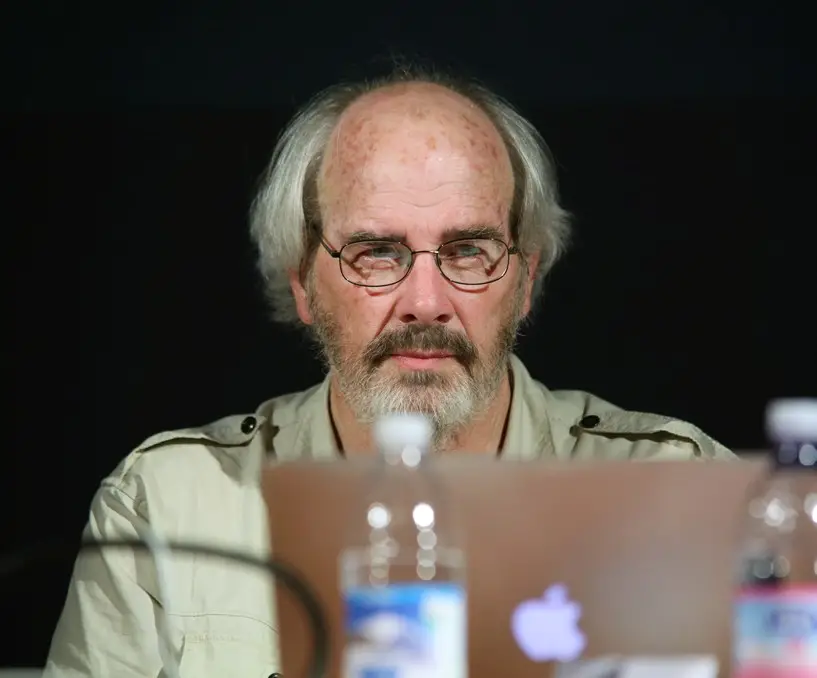
What makes John Robert Horner famous?
John Robert Horner is an American paleontologist, born on June 15, 1946, in Shelby, Montana. He grew up in Shelby and attended the University of Montana.
Horner studied with incredible difficulty. He came out as an introverted guy who had trouble speaking in front of people. He was regarded as lazy, retarded, and dumb at school. This didn’t prevent him from achieving his goals.
Horner was drafted into the U.S. Marine Corps and participated in the Vietnam War. After he returned home to Montana, he began working as a paleontologist at the Museum of the Rockies in Bozeman, Montana.
Jack Robert Horner is best known for accurately describing a dinosaur that inhabited present-day Montana State. He pointed out the social life of dinosaurs, including caring for their young ones.
[Source: Yale Center for Dyslexia]
#14. Jacques Dubochet (1942-Present): The Retired Scientist Who Revolutionized Microscopy
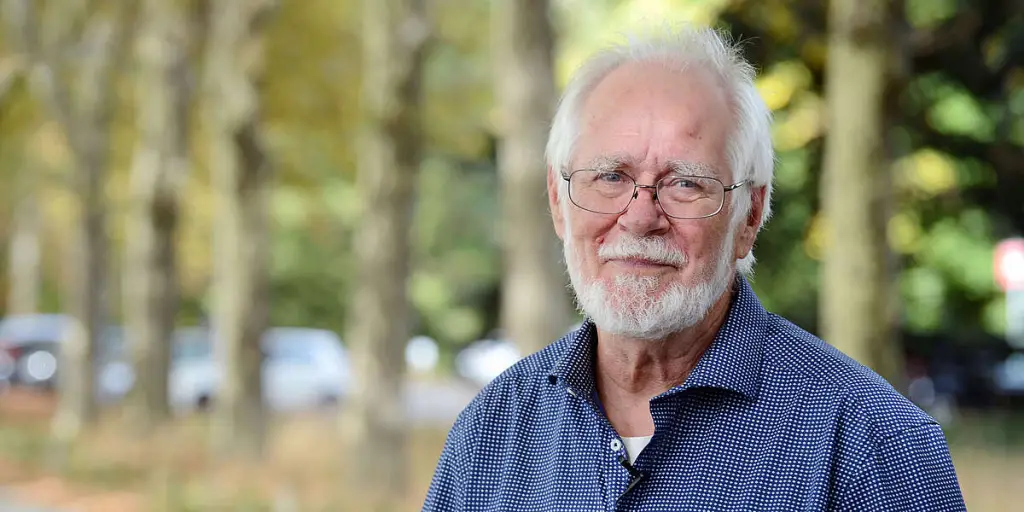
What makes Jacques Dubochet famous?
Jacques Dubochet is a Swiss biophysicist best known for his contributions to the development of cryo-electron microscopy. This achievement pioneered the study of biomolecules and earned him a share of the 2017 Nobel Prize in Chemistry alongside Richard Henderson and Joachim Frank.
You might be wondering what exactly cryo-electron microscopy is. It’s a process that allows scientists to see frozen biomolecules with incredible clarity. To put it simply: it makes tiny things look big.
Dubochet was born in Aigle, Switzerland, on June 8, 1942. He attended the University of Geneva, where he graduated with a degree in biophysics in 1973.
After graduating, he worked at the European Molecular Biology Lab in Germany before returning to Switzerland, where he took up a research position at the University of Lausanne.
Despite the success, Dubochet is one of the famous scientists who was diagnosed with dyslexia.
[Source: Encyclopedia Britannica]
Similar Articles:
- 17 Famous Earth Scientists That You Should Know
- 18 Famous Rocket Scientists That You Should Know
- 17 Famous Disabled Scientists That You Should Know
#13. Carol W. Greider (1961-Present): The Lady Who Pioneered Studies On The Structure of Chromosomes
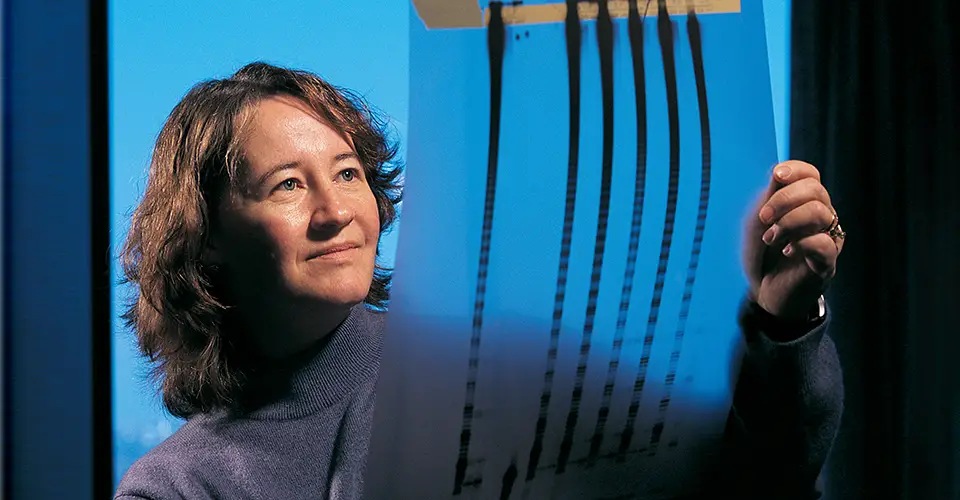
What makes Carol W. Greider famous?
Carol W. Greider is a molecular biologist born on April 15, 1961, in San Diego, California. She is best known for being the first person to discover the enzyme telomerase, which plays a major role in helping cells divide and grow.
Greider pioneered the study of chromosomes, particularly the structure of telomeres. She also worked on how chromosomes are protected from degradation when not needed by packaging them into tight coils called condensed chromosomes.
In 2009, she shared the Nobel Prize in Physiology or Medicine with Jack W. Szostak and Elizabeth Blackburn. They were awarded for discovering how telomeres and telomerase protect chromosomes during cell division and other processes that cause the erosion of DNA.
Greider revealed, during an interview, that she struggled through school. She explained how taking remedial classes didn’t improve her grades.
Greider is currently a professor at the University of California, Berkeley.
[Source: The Nobel Prize]
#12. Galileo Galilei (1564-1642): The Father of Observational Astronomy Who Made The First Space Telescope
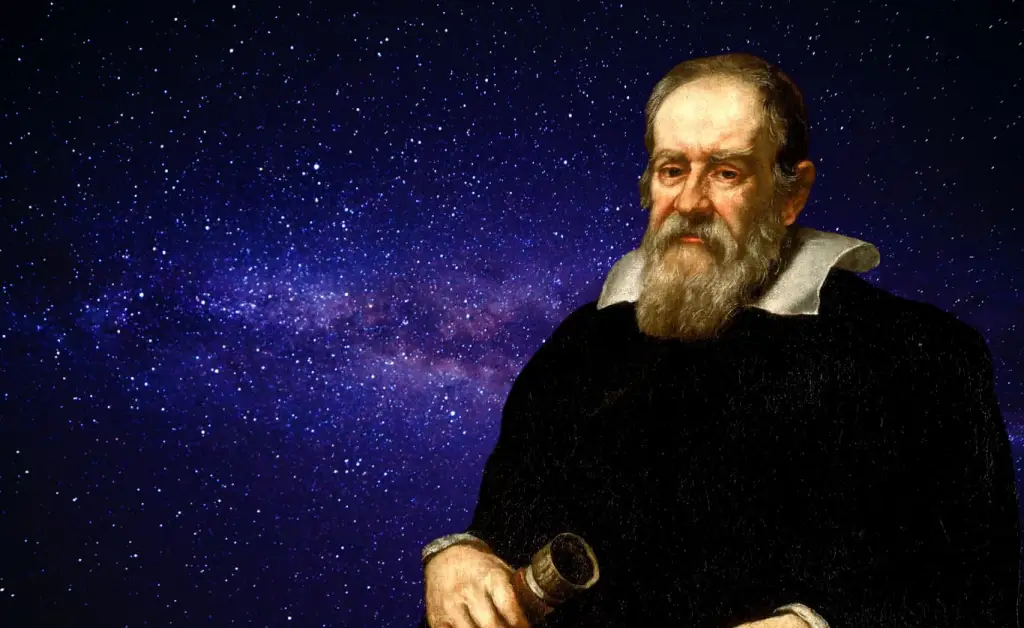
What makes Galileo Galilei famous?
This Italian polymath is one of the most famous scientists known for his contributions to the field of observational astronomy. He made significant discoveries regarding the nature of celestial bodies, including the phases of Venus, Saturn’s rings, and lunar craters.
Galileo also discovered that the earth revolves around the sun—considered heresy at the time. As an engineer, he also developed a thermoscope and military compasses that were useful in any weather. These accomplishments earned him a place in history as one of the most influential scientists.
The “father of modern science” had dyslexia from a young age. This didn’t prevent him from rising to be one of the most influential figures in science.
What’s the best Galileo Galilei quote?
” All truths are easy to understand once they are discovered; the point is to discover them.”
[Source: Dyslexic World]
#11. James Clerk Maxwell (1831-1879): A Force For Physics
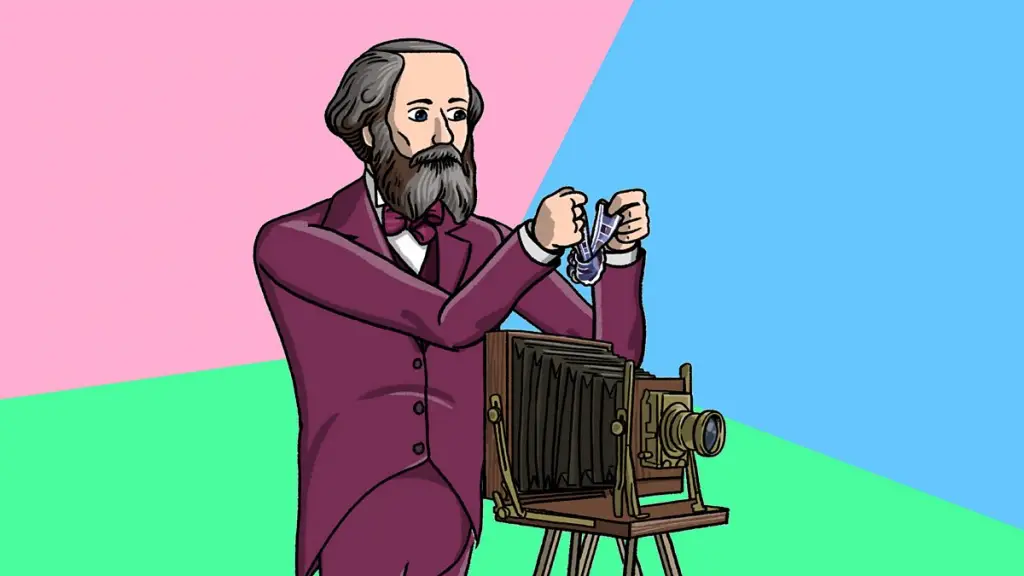
What makes James Clerk Maxwell famous?
If you want to know the contribution of James Clerk Maxwell, just imagine the world without electricity.
This Scottish scientist and mathematician contributed to the advancement of electromagnetic radiation. His classical theory helped explain the relationship between light, electricity, and magnetism.
Maxwell was a dull and shy student who had difficulties relating to others during his early school days. He spent his free time alone, often reading, drawing, or creating mechanical models.
Clerk Maxwell contributed to the formulation of the Maxwell-Boltzmann equation, which explains the kinetic theory of gases. Maxwell’s discoveries led to the introduction of several fields in modern physics, like quantum mechanics and special relativity. James Clerk Maxwell was a profoundly religious man who later became an elder in the church.
What’s the best James Clerk Maxwell quote?
“The only laws of matter are those that our minds must fabricate and the only laws of mind are fabricated by matter.”
[Source: University of Houston]
Similar Articles:
- 18 Famous Swedish Scientists That You Should Know
- 15 Famous Taiwanese Scientists That You Should Know
- 16 Famous Sport Scientists That You Should Know
#10. Baruj Benacerraf (1920-2011): A Pioneer in Immune System
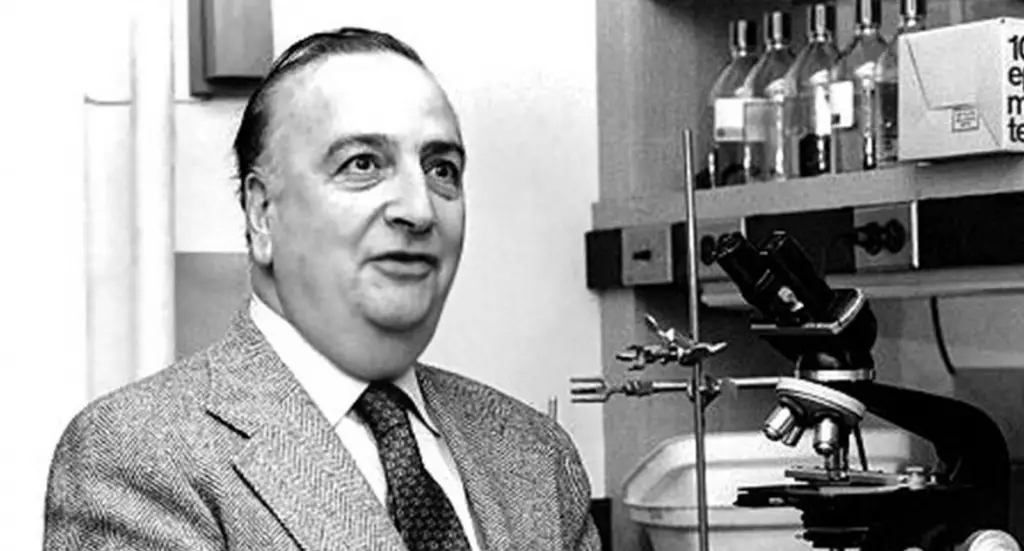
What makes Baruj Benacerraf famous?
Baruj Benacerraf was a Nobel Prize-winning Venezuelan-born American immunologist. He had dyslexia but overcame this condition to make path-breaking discoveries in science.
Benacerraf’s research helped scientists understand how antibodies work with other cells within the body’s immune response.
But what made him famous was his work on histocompatibility complexes and their role in transplantation tolerance.
In 1980, he shared the Nobel Prize in Physiology or Medicine with George Davis Snell and Jean Dausset for their work on the immune system.
What’s the best Baruj Benacerraf quote?
“Some of the most significant advances in molecular biology have relied upon the methodology of genetics. The same statement may be made concerning our understanding of immunology phenomena.”
[Source: The Lancet]
#9. Leonardo da Vinci (1452-1519): The Painter Who Had a Knack For Science

What makes Leonardo da Vinci famous?
Leonardo da Vinci was a polymath- an artist, an engineer, and a scientist.
He lived during the High Renaissance, a time of great innovation in art, science, and engineering. Da Vinci was also a painter, whose most famous piece is The Mona Lisa. It has been called one of the most recognizable paintings in history because of its iconic status as well as its beauty.
Da Vinci is best known for his contributions to anatomy, hydrodynamics, optics, and engineering, among others. Although these works were not published during his lifetime, they laid the foundation for future research into those fields.
Da Vinci’s mirror writing and erratic handwriting were primarily attributed to dyslexia.
What’s the best Leonardo da Vinci quote?
“Learning is the only thing that the mind never exhausts, never fears, and never regrets.”
[Source: Dyslexia]
#8. Alexander Graham Bell (1847-1922): The Man Who Invented the Telephone
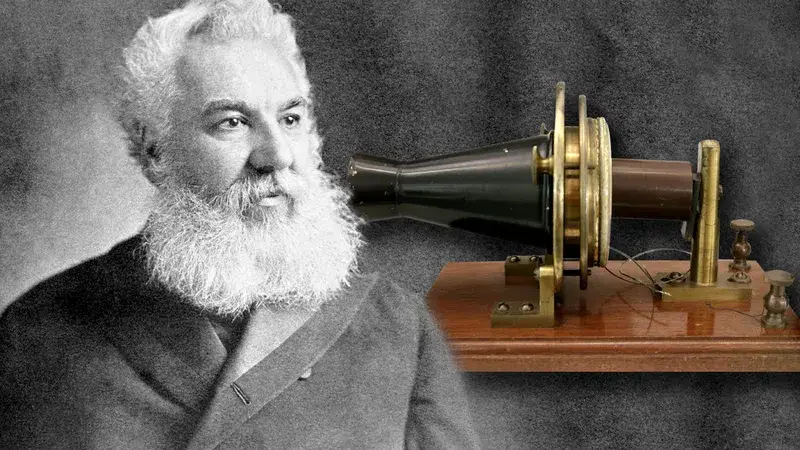
What makes Alexander Graham Bell famous?
Alexander Graham Bell, born in 1847 in Edinburgh, Scotland, was one of the most important inventors in history. He developed the world’s first practical telephone, which revolutionized global communication.
Bell also contributed to hydrofoils, optical telecommunications, and aeronautics. In addition to being a pioneer in these fields, he helped establish one of the world’s largest companies: AT & T (American Telephone and Telegraph Company).
Despite coming up with these amazing inventions, Bell struggled through school. Absenteeism and poor grades characterize his school records. His wife also had a hearing disability.
Alexander Graham Bell overcame all these dyslexic conditions to be one of the prominent figures in early geographic society.
What is the best Alexander Graham Bell quote?
“The only difference between success and failure is the ability to take action.”
[Source: Gemm Learning]
Similar Articles:
- 18 Famous Soil Scientists That You Should Know
- 20+ Famous British Scientists That You Should Know
- 15 Famous Irish Scientists That You Should Know
#7. Nikola Tesla (1856-1943): The Man Celebrated by Elon Musk
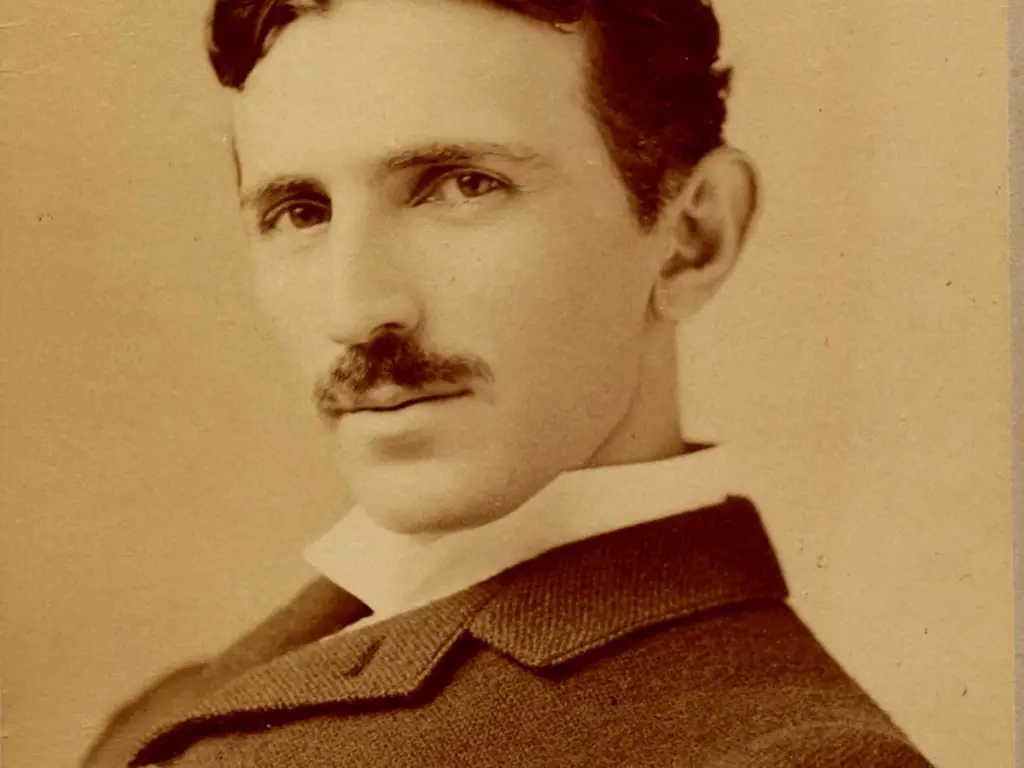
What makes Nikola Tesla famous?
Nikola Tesla is one of the most famous inventors and engineers in history. He was born in 1856 in what is now Croatia.
Tesla is one of the people with learning disabilities, as he struggled with dyslexia throughout his childhood.
Tesla is best known for his contributions to the modern alternating current (AC) system, which makes electric power available to homes and businesses everywhere.
He also invented the Tesla coil, which produces high voltage and low amperage. This allowed him to create lightning-fast motors and transmitters.
What’s the best Nikola Tesla quote?
“If your hate could be turned into electricity, it would light up the whole world.”
[Source: American Dyslexia Association]
#6. Thomas Edison (1847-1931): One of America’s Greatest Inventors

What makes Thomas Alva Edison famous?
Thomas Edison was born in 1847 in Ohio to Samuel and Nancy Elliot. As a boy, he studied arithmetic under the guidance of his mother—a school teacher. Edison would later enroll in a chemistry course, the only course he took from an institution of higher learning.
Edison wasn’t just a dyslexic student. He was a troublemaker, too. His mother resorted to homeschooling when she noticed that her son was lazy in school. Edison struggled with speech and couldn’t grasp arithmetic concepts.
In 1869, Edison patented his first invention: a vote register and recorder. He went on to create devices that made it possible for people to communicate over long distances and at great speeds.
Thomas Alva Edison was the man behind one of history’s most groundbreaking inventions: the light bulb. Other inventors later adopted his work on the light bulb and motion picture cameras.
These inventions changed the world forever—from lighting up our homes and offices to enabling us all to speak with one another across continents.
[Source: Gemm Learning]
#5. Stephen Hawking (1942-2018): One of The Influential Scientists Who Had a Learning Disability
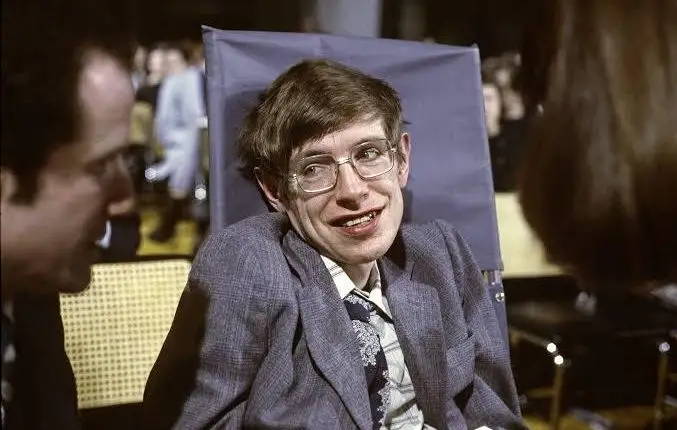
What makes Stephen Hawking famous?
Stephen Hawking was an English theoretical physicist who made an indelible mark on the world. He was born in 1942 in England and is best known for his work in theoretical physics.
He contributed to the study of the universe by focusing on its origin and structure, which continues to appeal to millions worldwide.
In addition to being a brilliant scientist, Stephen Hawking was also an avid writer. His books continue to appeal to millions of readers globally.
What’s the best Stephen Hawking quote?
“Intelligence is the ability to adapt to change.”
[Source: Read and Spell Blog]
Similar Articles:
- 30+ Famous Life Scientists That You Should Know
- 16 Famous Korean Scientists That You Should Know
- 16 Famous Shark Scientists That You Should Know
#4. Michael Faraday (1791-1867): The Father of Electricity
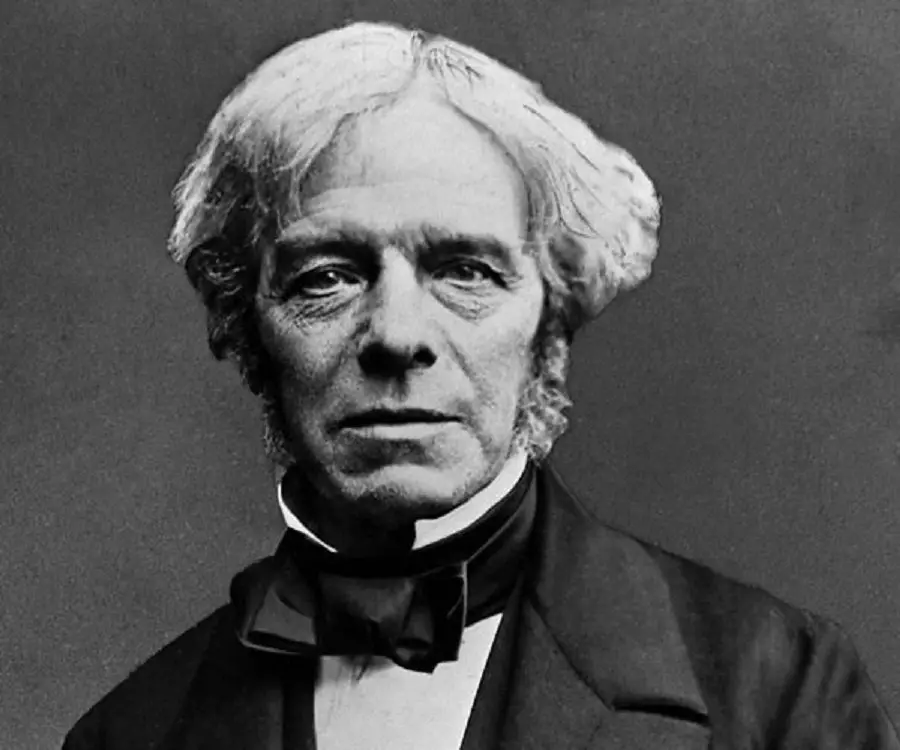
What makes Michael Faraday famous?
Born in England, Michael Faraday was the first to propose that electricity and magnetism are related. He made this discovery in 1831 when he found that a magnet could affect the current of electricity.
Faraday discovered electromagnetism while experimenting with magnetic fields to understand how electricity worked.
He also developed the concept of induction (also known as electromagnetic induction). This explains how mechanical motion could generate electricity. It was an important discovery because it meant there was no need for batteries anymore.
Faraday also did important research in the chemical sciences and discovered benzene. He also invented an early version of a Bunsen burner for studying gases. Although Faraday struggled with dyslexia, he received the 1902 Nobel Prize for his contributions to physics.
Michael Faraday had a learning disability. He struggled through school.
What’s the best Michael Faraday quote?
“But still try, for who knows what is possible?”
[Source: University of Houston]
#3. Louis Pasteur (1822-1895): The Man Who Rose To Be The Father of Microbiology
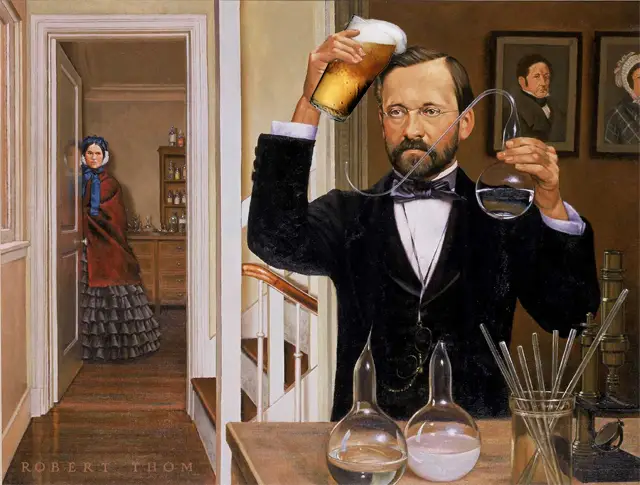
What makes Louis Pasteur famous?
Louis Pasteur was a French microbiologist and chemist best known for his work on microbial fermentation, pasteurization, and vaccination.
He had a learning disorder while growing up. This didn’t stop him from leaving his mark on the history of science.
Pasteur’s most notable achievement was developing principles of microbial fermentation, which still help in disease prevention. He also created a vaccine for rabies that has saved millions of lives worldwide.
Pasteur also disproved Aristotle’s theory of spontaneous generation by showing that germs were responsible for disease rather than the idea that germs could arise from non-living matter.
What’s the best Louis Pasteur quote?
“Science knows no country, because knowledge belongs to humanity, and is the torch which illuminates the world.”
[Source: Gemm Learning]
#2. Pierre Curie (1859-1906): Marie Curie’s Husband and a Nobel Laureate

What makes Pierre Curie famous?
Pierre Curie, a French physicist and chemist, was considered one of the most influential people in history. He was born in Paris in 1859.
Curie’s most famous discovery was about radioactivity. He discovered that certain elements were radioactive, emitting radiation when they changed from one form to another. He also studied magnetism, crystallography, and many other fields.
This discovery earned him the 1903 Nobel Prize in Physics, alongside Marie Curie (his wife) and Henri Becquerel.
Curie was the first married couple to be awarded a Nobel Prize for their work—they (with Marie Curie) received it jointly in 1903 for their work on radioactivity and magnetism.
What’s the best Pierre Curie quote?
“It would be a fine thing, in which I hardly dare believe, to pass our lives near each other, hypnotized by our dreams.”
[Source: The World of Dyslexia]
#1. Albert Einstein (1879-1955): The Father of Modern Physics
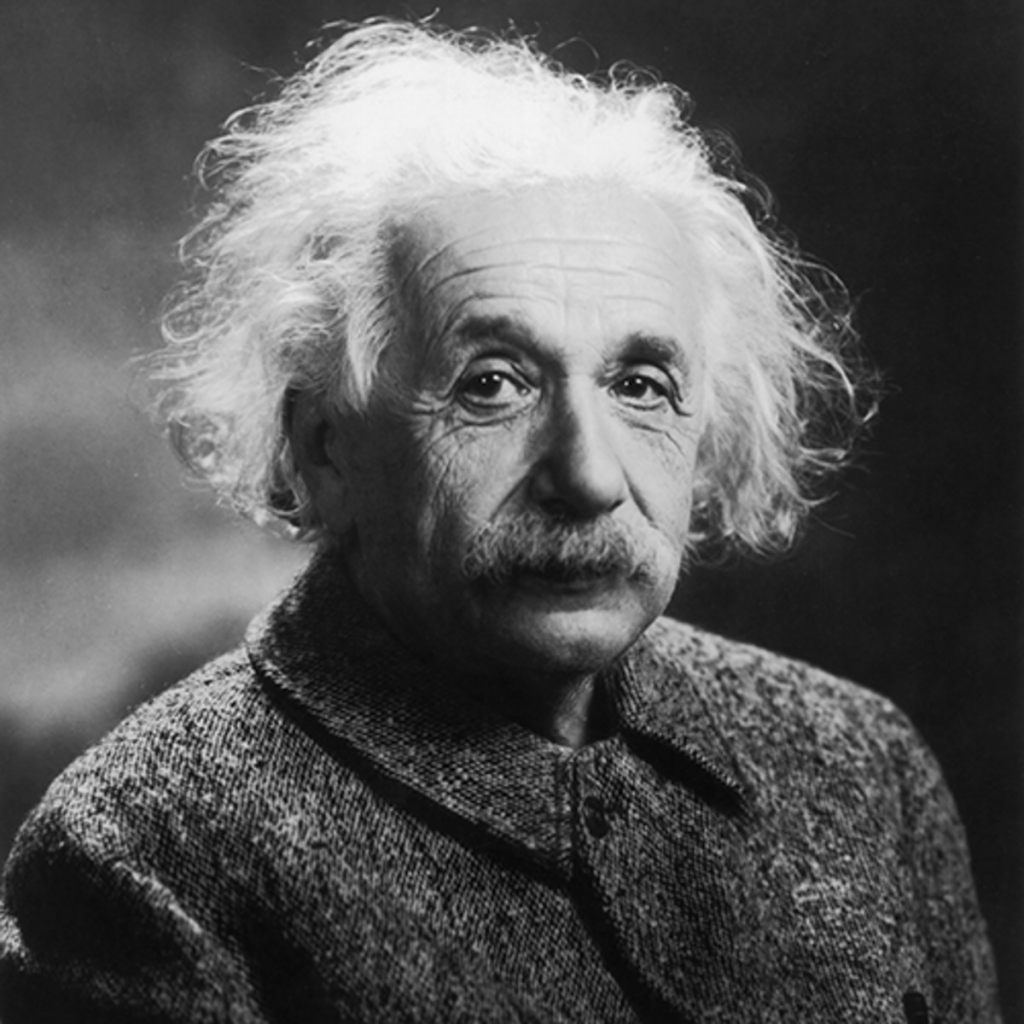
What makes Albert Einstein famous?
Albert Einstein was a dyslexic German theoretical physicist best known for his contributions to modern physics through his work on quantum mechanics and relativity.
Not only did Albert Einstein develop the theory of relativity, but he also developed one of the most famous equations of all time—mass-energy equivalence. He came up with the laws of photoelectric effects, which earned him a Nobel Prize in 1921.
This influential scientist suffered from Einstein Syndrome, characterized by late speech. His problems with speech point to an undiagnosed learning disability.
What’s the best Albert Einstein quote?
“Life is like riding a bicycle. To keep your balance, you must keep moving.”
[Source: Understood]
Final Thoughts
The truth is that we shouldn’t be surprised to see so many amazing scientists who have learning disabilities.
We all know that intelligence isn’t an indicator of how hard you can work or how good you are at problem-solving. It’s often the opposite: those who are less intelligent and have a lower intelligence quotient (IQ) tend to work harder and find creative solutions to problems that others might not even notice or care about.
As we’ve seen, some of our most brilliant minds had learning disabilities—and they succeeded despite them. We need to stop labeling people with learning disabilities as “different” or “disabled.” Instead, let’s celebrate them for the incredible contributions they’ve made to our world.

